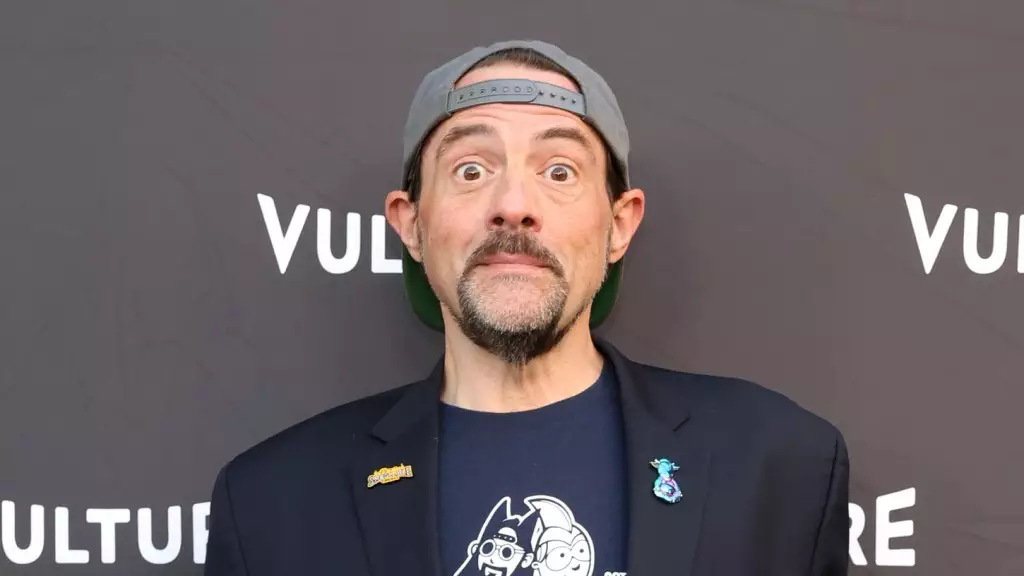In a cinematic landscape where nostalgia often drives creativity, Kevin Smith stands out as a filmmaker unafraid to revisit his past with unabashed enthusiasm. After a quarter-century since the release of “Dogma,” Smith recently announced plans for a sequel during the Vulture Festival’s Dogma Confessional. This revelation has sparked conversations among fans, filmmakers, and critics alike about the implications of revisiting a cult classic.
When discussing the sequel, Smith acknowledged the mixed feelings among fans regarding the continuation of a beloved story. Comments indicating that he might “ruin” the original are expected—artistic creations often hold a sacred place in the hearts of audiences. However, rather than retreating in the face of potential backlash, Smith displays a level of eagerness rarely seen in filmmakers handling sequels to iconic works. His approach suggests a confidence that the film’s thematic depth and irreverence can be recaptured and recontextualized for a modern audience.
The original “Dogma” was significant not only for its comedic narrative involving fallen angels Bartleby and Loki, played by Ben Affleck and Matt Damon, but also for its sharp critique of organized religion. Reengaging with such themes in today’s socio-political climate poses both an opportunity and a challenge. Smith’s humor must strike a balance: it needs to respect the original film while simultaneously pushing boundaries and challenging a contemporary audience’s sensibilities.
A key component of Smith’s excitement about the sequel revolves around the potential casting of Affleck and Damon. The duo’s return goes beyond mere cameo appearances; they are woven into the fabric of Smith’s universe, and their involvement is framed as essential to the film’s authenticity. Their camaraderie with Smith stretches back to the groundbreaking success of “Good Will Hunting,” a debt the actors acknowledge in jest. Smith’s ability to tease their participation highlights the playful nature of Hollywood relationships built on mutual respect and shared history.
Looking back, it’s clear that Affleck and Damon’s involvement in “Dogma” is part of a larger narrative encompassing the evolution of independent cinema in the late ’90s. This intimate connection not only nurtures nostalgia but opens dialogue about the actors’ criticisms, growth, and creative changes over the years, all of which could find their way into the sequel.
Modern Sensibilities in Storytelling
Smith’s announcement coincides with a renewed interest in “Dogma” that has made it available for streaming for the first time, igniting discussions about its cultural relevance today. This resurgence not only introduces the film to a new generation but also sparks inquiries about how its themes resonate amidst contemporary issues like social justice, gender equity, and spiritual questioning. As cultural narratives shift, Smith faces the task of threading these ideas into a sequel that can stand alone yet honor its predecessor.
The environment surrounding the entertainment industry has transformed drastically since “Dogma” was first released. The impacts of the #MeToo movement, rampant discussions around representation, and the exploration of modern religious beliefs all create a different backdrop for storytelling. Smith himself has shown a strong commitment to social issues, pledging to donate his residuals from works associated with Miramax to Women in Film. His sensitivity to these topics could lead to a richer, more nuanced exploration of its characters and themes in the anticipated sequel.
A Universe of Possibilities
Furthermore, Smith hinted at the expansion of the “Dogma” universe, suggesting that this narrative could pave the way for potential sequels or even a series. By reclaiming the story from its past constraints, there lies immense potential for reexamining the film’s satirical critique of religion, exploring new narrative arcs, or developing side stories that resonate with today’s audience.
Overall, Kevin Smith’s return to “Dogma” invites a cultural refresh—an opportunity not merely to relive the nostalgic joy of the original, but to engage in fresh discourse about its messages. While the concerns of devotees are valid, Smith’s acknowledgment of these fears and his willingness to embrace evolution in storytelling signal a commitment to not just recreate but to reinterpret. In an age where sequels and reboots are ubiquitous, a thoughtful approach to “Dogma” may surprise longtime fans and new viewers alike, proving that even the most unholy of sequels can hold potential for divine evolution in storytelling.

